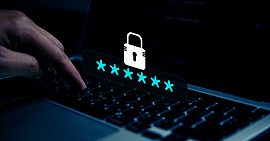Banking tips for the self-employed and SMEs.
18/10/2022
Setting up your own business requires a lot of effort, enthusiasm, reflection and a realistic business plan, the financial aspect of which is of great importance. To this end, a fluid relationship with your bank will allow you to get the most out of the banking products designed for entrepreneurs. Here are some basic tips:
- It is a good idea to open a current account for your professional activity separate from your personal account. It will help you to keep track of your income and expenses.
- Accounts for the self-employed allow you to combine services that can be useful for your work, such as hiring a POS terminal or managing the sending of receipts to your customers.
- Whether you carry out your economic activity as an individual or create an SME, your bank is obliged to notify you at least three months in advance if it intends not to extend the financing (e.g. a loan or credit line) that it has been granting you and also if it intends to reduce it by 35% or more. This will give you time to find new sources of financing or adjust your cash management so that your business is not hindered.
- Your bank must accompany this notification with a report on your financial situation and credit history, free of charge and in a standardised format, which you will be able to use in your search for financing from other banks. This document is called SME Financial Information, and you can request it at any time, not only in the case of renegotiation of the financing, although your bank may then charge you for issuing it.
- Just like any other bank customer, if a dispute arises with your bank in your professional sphere, you can complain to its Customer Service Department, which must give you a response within 15 days for disputes related to payment services, and within one month for all other matters. If you do not receive a response or if you are not satisfied with the response, you can subsequently complain to the Banco de España.



